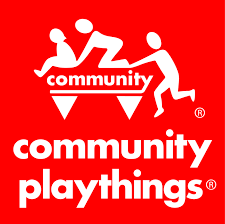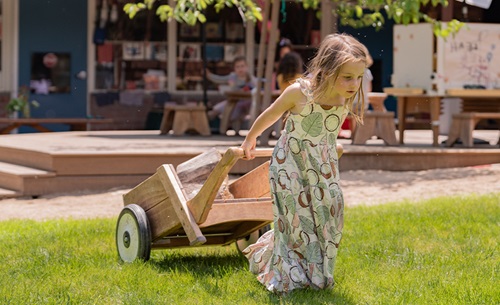Ready for Success:
Quality Care, School-Readiness, and the Skills Young Children Need to Succeed
| March 2018One of the most commonly discussed concepts in the world of early childhood, the term “school-readiness” is definitely a hot topic. While it might seem to be a basic concept, understanding what children need to be prepared for school warrants a more in-depth discussion. The answer to why school-readiness is well worth paying close attention to is threefold:
- As the world around us is changing, so is the concept of school-readiness and the skills commonly used to define it.
- The science of early brain and child development now offers compelling new support (for anyone not already convinced) that the first five years are far more foundationally important than many people realize.
- Early educators are increasingly recognized as not just caring adults, but actual brain-builders who, through all of their everyday interactions with babies, toddlers, and preschoolers, play a lead role in setting young children up for success, not just in school, but in life.
With these key points in mind, let’s start by considering which skills and abilities young children need to master in order to successfully jump into kindergarten. I’m willing to bet that for many parents and early educators alike, what comes to mind is a list that includes things like being able to recite the alphabet, recognize colors, and count to ten. These sorts of traditional skills, which I refer to as “IQ Skills,” have long been the bread-and-butter of preschool curriculum, and for good reason as they are thought of as foundational precursors for all of the future ‘reading, ‘riting, and ‘rithmetic-like skills to follow. These IQ Skills are still important. However, there is another set of equally important skills that, until recently, has been all too often overlooked, disregarded and undervalued.
Chances are you’re familiar with these other skills, having heard them referred to as “soft,” “non-cognitive,” or “other” skills. Let’s not forget “social-emotional” and “executive function skills.” In fact, once we add emotional intelligence, life skills, character, grit, perseverance, and a whole host of other trendy terms to the list, what we end up with is a long laundry list of skills that are increasingly proving themselves to be important. Calling them “soft” clearly doesn’t do them justice, while referring to them as “non-cognitive” is just plain wrong given that they involve complex functioning of the brain. Instead of simply resorting to calling them “other” skills for lack of anything better, I suggest we call these coveted skills, “QI Skills.”
The word QI (pronounced key, or sometimes “chee”) has been used across cultures and centuries to describe a positive life force, which certainly fits with our current understanding of these skills as necessary for success. It also serves to convey the fact that QI Skills are not a replacement for the IQ Skills, but rather a complement to them.
It’s worth noting that it’s not just in the early childhood world that QI Skills are being recognized as a priority. These very same skills are rising to prominence in the world of business and innovation, as well as across the entire education spectrum. In fact, in 2016, the World Economic Forum released a list of skills needed to succeed in the 21stcentury. While a third of the skills on this list represent the more traditional IQ Skills, a full two-thirds of them are QI Skills.
So what does a World Economic Forum list of adult and workforce-related skills have to do with you, quality early education and care, and school-readiness? What these coveted skills—encompassing everything from communication, collaboration, curiosity, and critical thinking to creativity, teamwork, grit, and adaptability—have in common is that they develop much earlier in life than most people realize. And by early, we’re talking as early as infancy, toddlerhood, and the preschool and pre-kindergarten years leading up to school entry.
Here’s where the science of early brain and child development comes in. With new and better ways to assess not just young children’s behaviors and outcomes, but how their brains develop, we have a much better understanding of why quality in early care is so important. Despite what has long been believed, we now know that babies’ brains are not simply sponges that absorb everything around them. They require social interaction for their brains to become actively engaged in learning new things.
As for how best to flip this social switch and more effectively foster learning, skill- and brain-building, the answer is simple. It requires the interactions with a caring, responsive adult that naturally take place during the day-to-day activities that early educators and caregivers routinely engage in with young children, activities that include back-and-forth interactions such as talking, cooing, singing, reading, and playing together.
The other thing we know about QI Skills that make them so important for early educators to understand and foster is that their value extends well beyond kindergarten readiness. In fact, a recent study by a team of leading social-emotional skill researchers found that young children’s ability to cooperate, share, and help others was predictive decades later of all sorts of meaningful outcomes, from the likelihood of graduating from high school, or attaining a college degree, to having a full time job.
The 7 QI Skills
When intentionally cultivated in the early childhood setting, the following seven skills define quality care and need to be added to our school-readiness checklists:
ME Skills:The first of the QI Skills are ME Skills, which are defined by self-awareness, self-control, and impulse control, along with focus and attention. One of the most important things to understand about ME Skills is that the ability to be in control of one’s thoughts, feelings, and actions takes time to develop. While ME Skills such as impulse control can and should be encouraged during toddlerhood and can be practiced through such simple activities as playing games, taking turns, and reading aloud (all which require quite a bit of attention and self-control), keep in mind that young children don’t typically start to show significant signs of progress until between the ages of 3 and 5 years.
WE Skills: WE Skills are the skills needed to play well with others. They include communication, collaboration, and teamwork, along with empathy and active listening. These skills are best learned through social interactions, both with adults and with other children. Everyday activities such as making a point to name and discuss the emotions of characters in books helps children develop an emotional vocabulary and learn the valuable skill of learning to read not just books, but other people.
WHY Skills: Curiosity and questioning serve to define the WHY Skills. While encouraging young children to ask lots of questions—not just why, but all sorts of questions—can admittedly be a bit challenging when you’re busy or at the end of a long day, it helps to remember that WHY Skills are what help children figure out and understand how the world works.
WILL Skills: WILL Skills are those skills that involve self-motivation and drive, and are often described as having “stick-with-it” or “get-the-job-done” attitudes. When it comes to young children, helping develop WILL Skills in part involves giving them words of encouragement and adequate time to practice and ultimately master a skill before swooping in to help. It also involves realizing that motivating children to do something through the constant use of rewards, whether in the form of stickers or sweets and treats, is not the same thing as self-motivation and has been shown, in fact, to potentially backfire and actually impair WILL Skill development.
WIGGLE Skills: While you may not be accustomed to thinking of wiggling as a skill, the important thing to understand about it is that physical and intellectual restlessness go hand in hand. While we all learn about the world by physically interacting with it, this is especially true for infants and young children. While there are certainly times when it is appropriate to strap young children in (e.g. in a car seat while driving) or have them practice sitting still, expecting them to always look but don’t touch is not only unrealistic, but stands to limit their learning. What young children really need is plenty of wiggle room in which they can safely explore, poke, touch, prod, and learn about the world.
WOBBLE Skills: Defined by adaptability, agility, and the ability to recover from failure, cultivating WOBBLE Skills involves creating safe settings and environments in which children are allowed to fail, and then are encouraged to brush themselves off, get right back up, and try again. From a practical standpoint, this amounts to such simple everyday approaches as allowing toddlers to topple, resisting the urge to say “don’t run” simply for fear that a preschooler might fall, or helping young children problem solve when they run into obstacles rather than coming to their rescue by providing quick and easy solutions.
WHAT IF Skills:WHAT IF Skills are highly valued in today’s world, and represent the culmination of all of the QI Skills. They include creativity, innovation, and imagination, as well as hope. There are lots of creative activities that help foster WHAT IF Skills, from reading books and telling stories to drawing pictures and make-believe play. That said, it’s also worth remembering that young children naturally excel at being creative and imagining a world of possibilities. That means that our role in cultivating QI Skills doesn’t just involve teaching them, but rather realizing that there’s more than one way to do things and making sure we don’t train the creativity and imagination out of them.
You can find more information on early brain and child development, the developmental milestones of QI Skills, and suggestions for how to cultivate them in the classroom in Dr. Jana’s book, The Toddler Brain: Nurture the Skills Today That Will Shape Your Child’s Tomorrow, as well as in her children’s book, Jumping Into Kindergarten!
You can also find more information in Dr. Jana’s recent TED talk, given at TEDxChandigarh in January 2018, titled The Skills Every Child Will Need to Succeed










